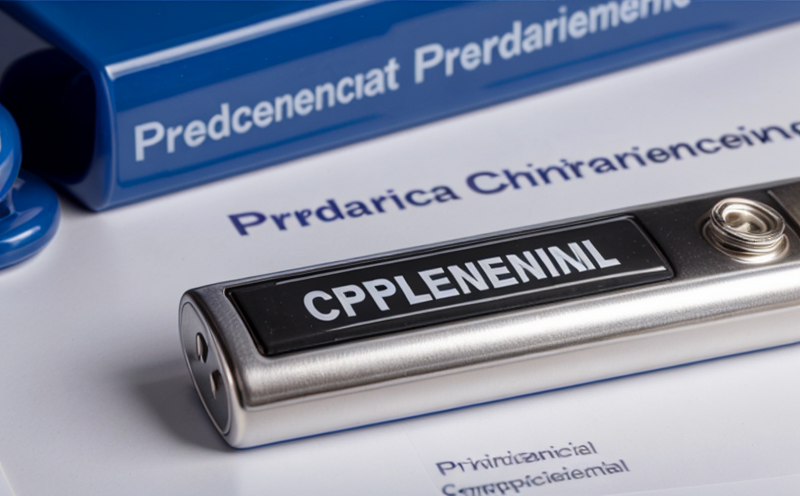Pharmaceutical Compliance for Clinical Trials: Ensuring Regulatory Adherence
Conducting clinical trials is a complex process that involves numerous stakeholders, including pharmaceutical companies, regulatory agencies, healthcare providers, and patients. In this highly regulated environment, compliance with pharmaceutical regulations is paramount to ensure the safety and efficacy of investigational products while maintaining public trust.
Pharmaceutical compliance for clinical trials encompasses various aspects, including good clinical practice (GCP), investigational new drug (IND) applications, and good manufacturing practice (GMP). Regulatory agencies such as the US FDA, European Medicines Agency (EMA), and International Conference on Harmonisation (ICH) provide guidelines and regulations to ensure compliance. Non-compliance can result in severe consequences, including trial suspensions or terminations, financial penalties, and damage to a companys reputation.
Key Aspects of Pharmaceutical Compliance for Clinical Trials
Informed Consent: Ensuring that patients understand the risks and benefits associated with participating in clinical trials is crucial. Informed consent forms must be clear, concise, and transparent. Regulatory agencies demand strict adherence to informed consent regulations to protect patient rights and well-being.
Record-Keeping and Documentation: Accurate and detailed records of all trial-related activities are essential for compliance. This includes documentation of study protocols, participant information, laboratory results, and any adverse events or withdrawals. Electronic data capture (EDC) systems can facilitate record-keeping but must be validated to ensure data integrity.
GCP Requirements
Study Protocol: The study protocol outlines the trials objectives, methodologies, and procedures. It should be comprehensive, well-written, and free of errors.
Investigator Responsibilities: Investigators are responsible for ensuring compliance with GCP principles. This includes conducting the study in accordance with the protocol, maintaining accurate records, and reporting adverse events promptly.
Monitoring and Auditing: Regular monitoring and auditing by regulatory agencies or sponsors ensure that trials adhere to GCP guidelines.
Patient Safety: Ensuring patient safety is a critical aspect of clinical trial compliance. Investigators must be aware of potential risks and take necessary precautions to mitigate them.
GMP Requirements
Facility Design and Operations: Manufacturing facilities, laboratories, and storage areas must meet stringent GMP requirements for cleanliness, organization, and equipment maintenance.
Equipment Calibration and Maintenance: All equipment used in the manufacturing process must be calibrated, maintained, and validated regularly.
Supplier Qualification: Suppliers of raw materials, packaging, and other critical components must be qualified to ensure they meet GMP standards.
ICH Guidelines
The ICH guidelines provide a framework for ensuring regulatory compliance across multiple regions. These guidelines address various aspects, including:
Clinical Trials Regulation (CTR): The CTR provides guidelines for conducting clinical trials in Europe.
Good Clinical Practice (GCP): The E6(R2) guideline outlines principles and practices to ensure GCP standards are met.
Investigational Medicinal Products (IMPs): The ICH E6(R1) guideline addresses the development, production, distribution, and control of IMPs.
QA Section
Q1: What is the primary responsibility of an investigator in a clinical trial?
A1: An investigators primary responsibility is to ensure compliance with GCP principles by conducting the study according to the protocol, maintaining accurate records, and reporting adverse events promptly.
Q2: How can pharmaceutical companies ensure patient safety during clinical trials?
A2: Pharmaceutical companies must conduct thorough risk assessments, establish clear informed consent processes, and maintain accurate documentation of adverse events.
Q3: What is the purpose of an IND application?
A3: An IND application is submitted to regulatory agencies (e.g., FDA) to gain approval for conducting human clinical trials with a new investigational product.
Q4: How can sponsors ensure compliance with GMP regulations in their manufacturing facilities?
A4: Sponsors must conduct regular audits, train personnel on GMP requirements, and implement quality control measures to maintain facility cleanliness, equipment calibration, and supplier qualification.
Q5: What are the consequences of non-compliance with pharmaceutical regulations during clinical trials?
A5: Non-compliance can result in trial suspensions or terminations, financial penalties, damage to a companys reputation, and loss of public trust.
Q6: How do electronic data capture (EDC) systems contribute to compliance in clinical trials?
A6: EDC systems facilitate accurate record-keeping, enable timely data collection, and help maintain data integrity. However, they must be validated to ensure accuracy and reliability.
Q7: What is the significance of informed consent forms in clinical trials?
A7: Informed consent forms provide patients with comprehensive information about trial risks and benefits, enabling them to make informed decisions regarding their participation.
Q8: How do regulatory agencies monitor compliance during clinical trials?
A8: Regulatory agencies conduct regular inspections, audits, and monitoring visits to ensure compliance with GCP, GMP, and other regulations.
Q9: What is the role of a Qualified Person (QP) in ensuring compliance with GMP regulations?
A9: A QP is responsible for reviewing and approving all pharmaceutical products manufactured within their facility to ensure they meet GMP standards.
Q10: Can clinical trials be conducted remotely or virtually, and what are the implications for compliance?
A10: Yes, remote or virtual clinical trials can be conducted, but they must adhere to strict regulatory guidelines regarding data integrity, patient safety, and informed consent.

































